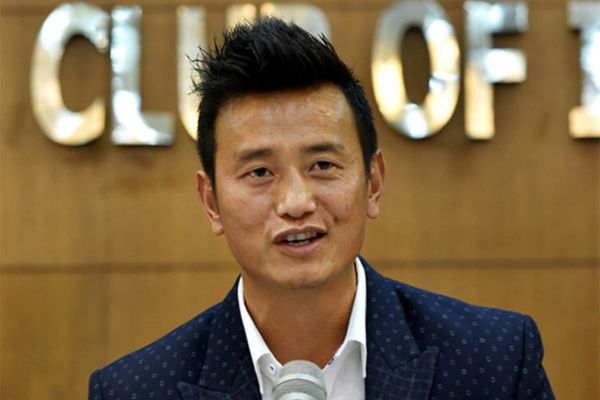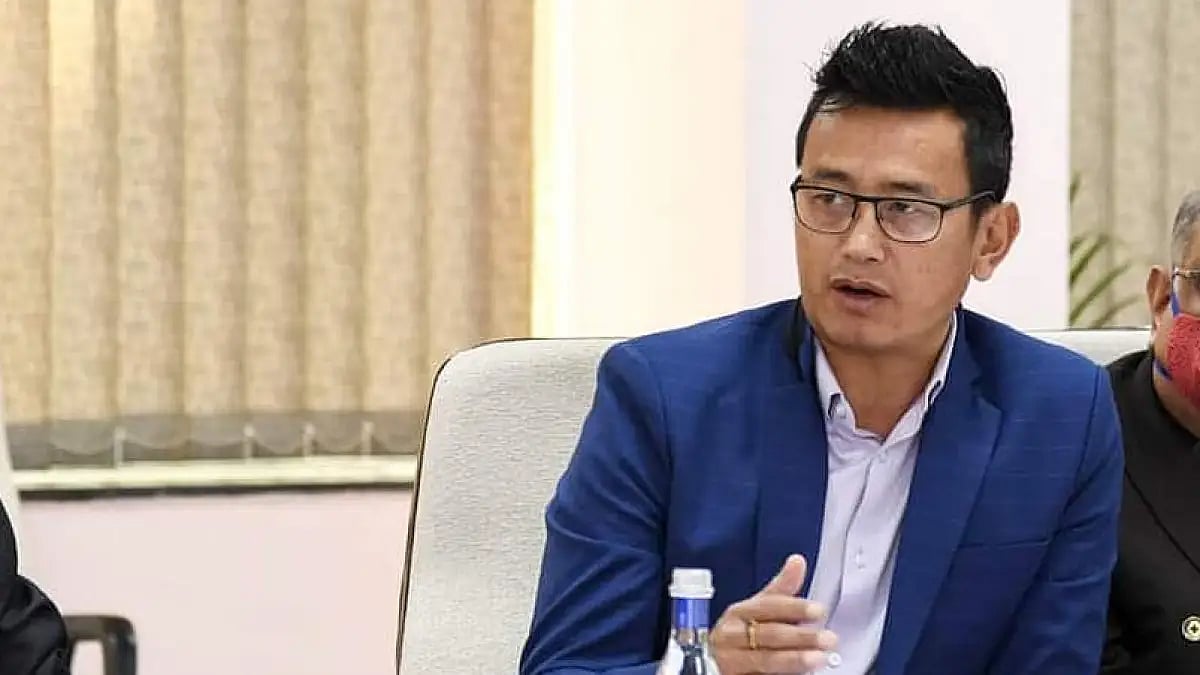
India's AFC Asian Cup Qualifier Disappointment: A Call for Change
On June 11, 2025, the Indian national football team faced a disappointing defeat against Hong Kong, losing 0-1 in the AFC Asian Cup 2027 qualifiers. This loss followed a goalless draw against Bangladesh, leaving India in a precarious position in their qualifying campaign. The team, which has struggled to find its form, has scored only seven goals in 15 matches since the beginning of 2024, raising serious concerns among fans and analysts alike.

Amidst this turmoil, former India captain Bhaichung Bhutia did not hold back in his criticism of the All India Football Federation (AIFF). He accused the organization of failing to provide adequate support to its players. Bhutia highlighted that players were promised a USD 50,000 bonus for a win against Hong Kong, a move he deemed misguided given the team’s current struggles. He remarked, “We’ve seen reports that players haven’t even received their daily allowance of ₹2,500. Indian footballers don’t have central contracts like cricketers. They don’t earn in lakhs or crores. Their compensation largely comes through daily allowances.”
Bhutia’s comments come in the wake of India’s declining performance, which has seen them drop in the FIFA rankings despite a promising start to 2023. The national team managed to achieve some success, winning the Intercontinental Cup, Tri-Nation Tournament, and SAFF Championship, only to falter in recent qualifiers. Reflecting on the past few years, he stated, “It’s been a terrible two and a half to three years under Kalyan Chaubey’s leadership. On-field performances have been poor, and off-field management has been chaotic, riddled with controversies. It’s time for him to step down—for the sake of Indian football.”
The Impact of Leadership
As India faces the grim prospect of missing out on the 2027 Asian Cup, the need for systemic change within the AIFF has never been more urgent. With nations like Uzbekistan securing their maiden World Cup qualification, India must address its internal issues to regain its competitive edge on the international stage. Bhutia’s call for AIFF president Kalyan Chaubey to resign highlights a growing sentiment that the current management structure is inadequate for nurturing football talent in India.
India's struggles on the pitch have been compounded by administrative issues off it. Bhutia's critique exposes not just the lack of financial support for players but also a deeper systemic failure within the AIFF, which has struggled to create a conducive environment for the growth of football in the country. The AIFF has been marred by controversies, including allegations of poor governance and financial mismanagement.
In recent years, Indian football has been marked by inconsistent performances and an inability to secure positive results in crucial matches. The staggering 0-1 loss against Hong Kong was a stark reminder of these issues. The defeat was sealed by a stoppage-time penalty, which underscored India's frailties in both defense and attack.
A Historical Perspective
Historically, Indian football has faced numerous ups and downs. From the glory days in the 1950s and 1960s, when India was a competitive force in Asia, to its current struggles for consistency, the narrative has been tumultuous. The national team has been unable to build on past successes, and fans are left yearning for a revival. The alarming trend of scoring difficulties—only seven goals in 15 matches—reflects a deep-rooted problem in tactical execution and player development.

The recent criticism from Bhutia, a figure revered in Indian football, resonates with many fans who have witnessed the gradual decline of the national team. His emphasis on the need for central contracts mirrors the structures in more successful footballing nations, which often secure financial stability for their players. This disparity raises questions about the AIFF's commitment to developing football in India and its ability to attract and retain talent.
Changing the Narrative
Bhaichung Bhutia's passionate plea for reform is met with both support and skepticism from the football community. Some argue that the AIFF requires a complete overhaul to instill fresh ideas and perspectives, while others worry that such drastic changes could destabilize the already precarious situation.
The AIFF’s response to Bhutia's comments has been critical, with Chaubey defending the federation's decisions and emphasizing efforts to strengthen the sport. However, the tangible results on the field tell a different story, as fans continue to see their hopes dashed in qualifying campaigns.
The situation calls for a comprehensive strategy that not only addresses immediate performance issues but also lays down a long-term vision for Indian football. This includes investing in grassroots programs, enhancing coaching standards, and fostering a competitive domestic league that can serve as a breeding ground for future stars.
Looking Ahead
As the 2027 Asian Cup approaches, the Indian national team faces a pivotal moment in its history. A failure to qualify would not only be a setback on the international stage but may also have lasting repercussions for football in India. The clock is ticking, and decisive action is needed.
Fans and pundits alike will be watching closely as the AIFF navigates these challenges. The need for leadership change, as echoed by Bhutia, could be the catalyst for a much-needed transformation. With the right structure and support, Indian football could reclaim its place among Asia's elite.
In conclusion, the recent AFC Asian Cup qualifier defeats serve as a wake-up call for Indian football. Leadership, transparency, and a renewed focus on player welfare are essential for revitalizing the sport in the country. As Bhutia aptly put it, “It’s time for change,” and perhaps, just perhaps, that change could turn the tide for Indian football.

For more insights on Indian football and the latest developments, follow NDTV Sports.